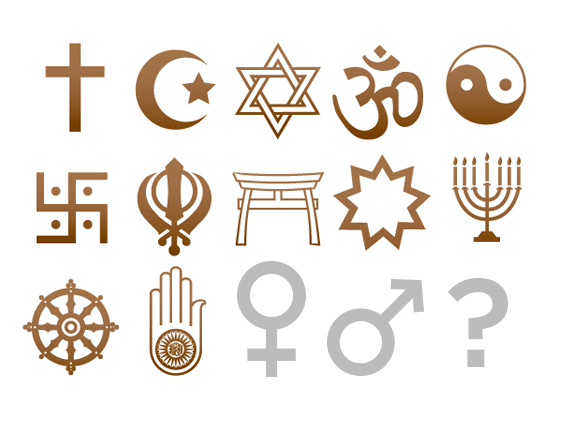
Commentary on York University: Religious Freedom vs. Women’s Rights
Nicole Goulet is an instructor in the department of religion at the University of Manitoba and a Fellow at St. John’s College on the Fort Garry campus. She studies both religion and the role of women in society and UM Today asked her to comment on the situation at York University.
The recent controversy at York over a student’s request to be given an alternate assignment because it went against his religion to be in the presence of women, has certainly stirred up some debate. Not only has it raised questions about the extent to which one should protect religious rights and freedoms in secular academic institutions, but it has coincided with the tumult in Quebec over the attempt to pass a bill which would prohibit the display of any and all religious symbols at public institutions.
I had two immediate and closely related responses to the situation at York. First, that as a female instructor at a university, the student in question would likely not have even taken a course with me simply because of my gender, and not because I lacked the qualities or education that made for a proficient scholar and teacher in the field. I work very hard at what I do, and the idea that students could discriminate against me on such a basis is demeaning and distressing. Second, in such a position I would instinctively want to protect the women with whom the student was supposed to work—why should they have to engage with someone who openly discriminates against them? And so, unlike Professor Grayson, it is all too likely I would have acquiesced to the student’s request, and hoped that the issue would go away.
But upon reconsideration I find I must commend Professor Grayson for his stance. While many of our academic institutions seek to provide religious freedom there are certain boundaries that have to be set in order for the university to function as democratically as possible. The situation at York points to evidence of a hierarchy of values held by our society, in which the religious practitioner is afforded more rights than the women whose presence offends him. If we replaced the term, “women” with another category of people that have historically experienced marginalization, we could, indeed, see how problematic the situation really is. So if rather than saying, “I cannot work with women because of my religion,” we said, “I cannot work with non-whites because of my religion,” or “I cannot work with Jews because of my religion,” or “I cannot work with immigrants because of my religion,” one could be wholly confident (I should hope) that the student would not have been granted his request. Yet for some reason, particularly when religion comes into play, the category of “women” is designated as an acceptable category of discrimination.
There are two main reasons why discrimination against women for religious reasons is allowed. First, it is because most of the world’s religious traditions do have some sort of history of discriminating against women. That is not to say that all religions presently discriminate against women, but of the major world religions, there have been at the very least significant periods of time in which women have been defined as subordinate to their male counterparts. This is certainly true of Judaism, Christianity, Hinduism, Buddhism and Islam but the list could be made considerably longer. If gender discrimination is part of their histories (and for some sects, part of contemporary practice), and we as a society have asserted the right to religious freedom, how are we to adequately respond to a discrimination that has already been accepted as rightful religious practice?
Second, for a variety of historical reasons, religion in our society has been viewed as primarily a private affair. Because of the idea that religion is a matter of personal conscience it is also a commonplace that people should be allowed to quietly practice their religious tradition without suffering from state interference or persecution. Even if that practice perpetuates discrimination against women. The very public situation at York is so uncomfortable for so many because it illuminates the way in which our society has accepted discrimination against women when it has been buttressed by the demand for religious freedom. And I for one, hope it will be a situation that is resolved not by the extension of private and religious rights into a secular and public space at the expense of women, but by the reinforcement of the more fundamental claim of human equality.








Thoughtful, well written article that expressed some well founded comments.
Excellent commentary. It put the thoughts an opinions of many people into well written words. Religious freedoms cannot ever trump basic human rights. Keep writing 🙂